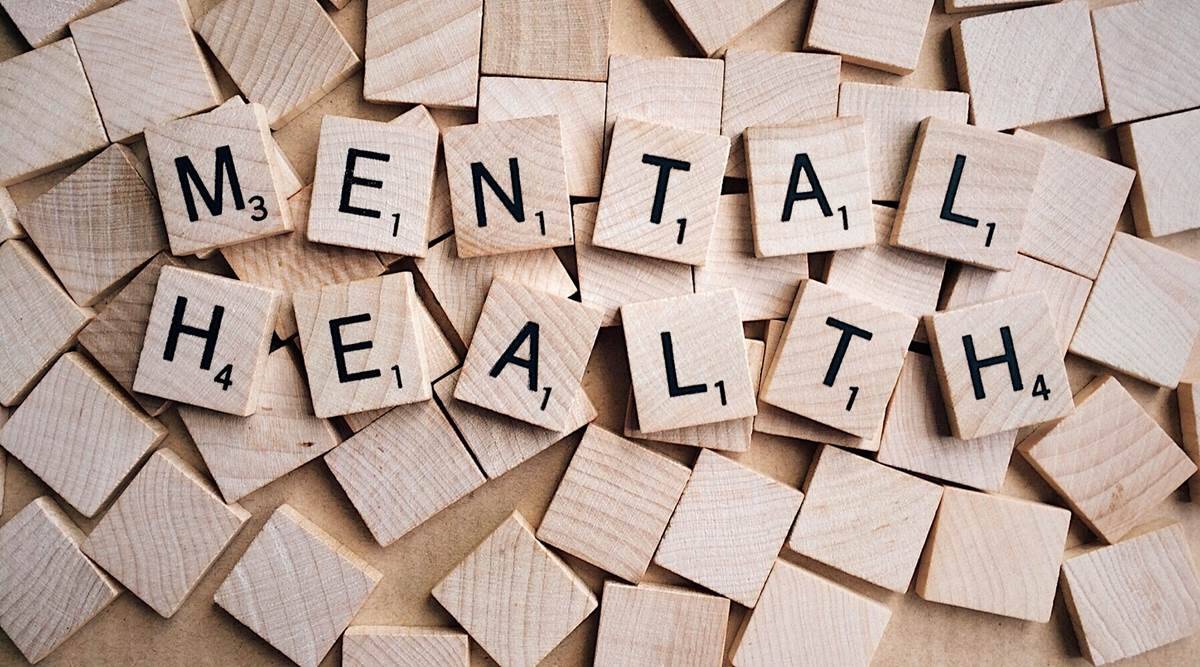 In the middle of a raging pandemic, healthy mental health and behavioural patterns are a top priority. (Photo/Pixabay)
In the middle of a raging pandemic, healthy mental health and behavioural patterns are a top priority. (Photo/Pixabay) We are living in uncertain times. With the second wave of COVID being touted as even more unpredictable than the first, the fear of the unknown is growing. “This growing uncertainty can massively affect the mental health of seniors. The fact that they are the most susceptible to the virus coupled with the fear of losing their loved ones and the guilt of possibly being the carriers of the virus can be detrimental to their mental health,” said Dr Shilpi Kulshreshtha, head clinical care, Antara, a Max Group company specialising in senior care.
She added: “Additionally, quarantine leads to loneliness, restricts their mobility and independence causing an increase in grief, anxiety, and chronic stress that can have long-standing psychological effects. Some situations like the loss of a close family member or a friend can cause traumatic stress or even PTSD (Post Traumatic Stress Disorder), which can persist for months or even years and many might be unaware of this.”
Families and caregivers need to be consciously involved in taking care of the elderly and stay updated about the symptoms and the coping techniques of traumatic stress and show utmost sensitivity to their mental health.
Symptoms of trauma-led stress
Emotional symptoms
Disbelief in the event: Not accepting the reality and feeling disconnected and numb
Losing trust in oneself: Being worried about losing control if the same situation prevails in the future, always on the alert mode
Grief: This can be due to losing someone close (family or friends) to the virus, or just sadness induced by the situation around the world.
Feeling helpless: The unpredictable pandemic left many feeling vulnerable, helpless, making them prone to anxiety/depression.
Feeling guilt: Seniors might feel guilty that they couldn’t do anything to help others who have died
Anger: They may be angry at the government, or people who are not following the covid-guidelines or anyone else they feel are responsible for the situation
Physical symptoms
*Increase or loss of appetite
*Changes in sleeping patterns including nightmares or insomnia
*Difficulty in concentrating on a thought, or racing thoughts and not being able to stop
*Memory problems or confusion
*Excessive sweating leading to dizziness, fainting
*Chest pains or pounding heart
*Difficulty breathing or rapid breathing
*Unexplained aches and pains
Difference between traumatic stress and PTDS in seniors
“Both PTSD and traumatic stress have similar symptoms right after the trauma occurs but they advance in different ways. Traumatic stress symptoms improve over time through proper care of mental and emotional wellbeing. If however, traumatic stress symptoms don’t gradually improve, this means that the nervous system remains in a loop, seniors are unable to move on from the trauma caused by the event for a prolonged period of time. This causes PTSD. In some cases, they might start feeling worse each day instead of getting better because of being in a psychological shock,” Dr Kulshreshtha told indianexpress.com.
Coping techniques
Minimizing exposure to the media
*Don’t watch the news about the pandemic or check social media just before bed. Take a break from watching the news completely if necessary.
*Try to avoid distressing images and video clips such as people suffering in hospitals etc
Accepting your feelings and the reality
*Denial or disbelief will only worsen the symptoms
*Accepting them and then working on them will make the process of coping much easier
*Give yourself time to heal, don’t force the process
Exercise and stay motivated
*Exercise to release feel-good endorphins
*Start incorporating mindfulness activities into your days such as yoga, deep breathing exercises, or meditation
*Boost your energy and your mood through listening to favorite music, moving around, reading your favorite book, cooking, etc
Stay connected
*Social isolation due to covid guidelines can leave you feeling alone and helpless
*It’s important to stay connected with friends and family, even if it’s through video calls
*You don’t necessarily have to talk about the pandemic or anything that might trigger your trauma, instead, talk about other day-to-day normal things
Use grounding exercises
*Put your hands in water
*Pick up or touch items near you
*Breathe deeply
*Savour a food or drink
*Take a short walk
*Hold a piece of ice
Maintain diet and sleeping patterns
*The food one eats can directly affect one’s mood and hence the ability to cope with stress
*Depending on your medical condition, your doctor can provide you with a diet that keeps the emotional and mental health in check as well.
*Sleep management is crucial as trauma can cause disruptions in the sleeping pattern. Avoiding caffeine in the evening, avoiding alcohol, and doing something relaxing before bed such as reading a book or listening to music can help
It’s time to seek professional treatment when
*It’s been over six weeks since the event, and you’re only feeling worse. For example, one still has trouble sleeping and hypervigilance
*Connecting to others seems difficult, you’re socially isolating yourself
*Having nightmares or flashbacks, experiencing recurrent and intrusive memories of the trauma (in case of PTSD).
*Avoiding things or situations that remind you of the traumatic event.
*Thinking about suicide or having suicidal feeling
“It’s normal to experience traumatic stress following a disturbing event as severe as this global pandemic, but it’s important to know how to deal with it in order to improve one’s health. One should also know when to seek professional help if the need arises,” Dr Kulshreshtha said.
- The Indian Express website has been rated GREEN for its credibility and trustworthiness by Newsguard, a global service that rates news sources for their journalistic standards.

